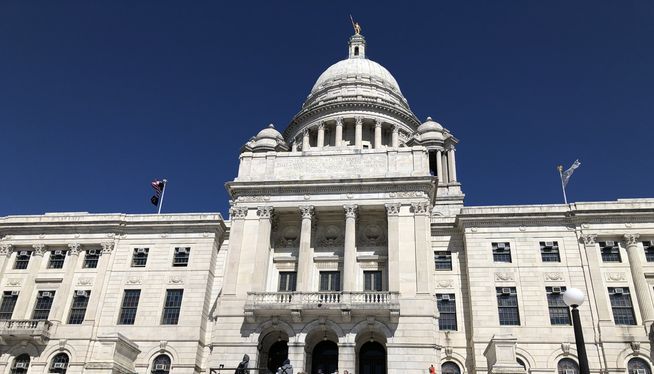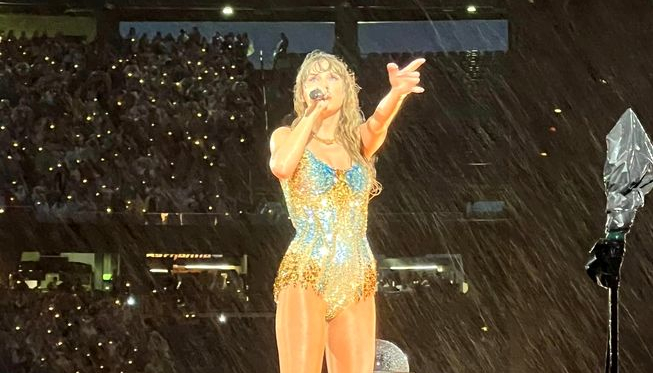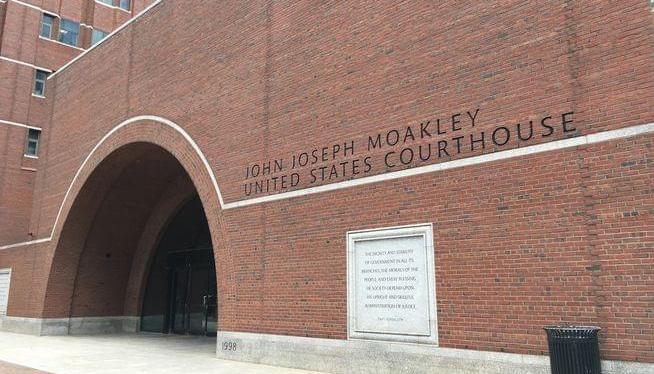
By Kimberly Rau
How far can you get away from your family? How well can you remove yourself from your upbringing, the sins of your father, and reminder of what could have been, for better or worse, in the presence of your own brother? Is the desert far enough? What about a fancy education? How far west do you have to go, before you find yourself right back where you started?
On its surface, Sam Shepard’s play True West is about two brothers battling for acceptance from the other. Austin is a screenwriter, out in California to house sit for his mother while she journeys to Alaska for reasons unknown. Lee is shiftless, recently back from three months in the Mojave, a burglar. His inferiority complex manifests in violence, Austin’s, in the way he dresses, speaks, avoids telling anyone about where he came from. Their father? A less useful version of Lee, and the less said of either of them, Austin would have you believe, the better.
Things come to a head when Lee hustles Saul, a producer Austin has been courting, and ends up getting the chance to write his own “based on true events” movie. Austin’s jealousy proves to be too much, and by the time the brothers’ Mother returns to town, you’re starting to believe what Lee said earlier in Act 1, that family members kill each other when things get too hot. Lee was talking about the weather, but Shepard certainly wasn’t.
Despite the grim-sounding plot, this show is full of hilarious moments, and the script sings under the direction of Tony Estrella. The entire show rides on Anthony Goes (Lee) and Steve Kidd (Austin), and their natural rapport on stage ensures that True West is a masterpiece.
Kidd plays the seemingly quiet, perhaps slightly neurotic, Austin to perfection. Though his words to Lee in Act 1 are careful, worded so as not to set off the powder keg pacing in the kitchen, you can practically see the tension coming from every pore. When he finally snaps, Kidd handles the transition seamlessly, jumping believably from careful and calm to flat-out hostile in a moment. The perfect mirror to these actions, Goes roams the set recklessly, snapping like an animal at every perceived insult. Eventually, Lee decides he can write his own script, and the image of Goes hulking behind the slim typewriter, banging away one key at a time, perfectly captures the disruption he’s brought back into Austin’s life.
There are two other much smaller parts in the show, Saul the producer, played by Richard Donnelly, and the guys’ mother, played by Rae Mancini. Both Donnelly and Mancini are great in these roles, including Donnelly’s ability as Saul to roll with Lee’s most ludicrous punches, and Mancini’s over-it take on her sons almost literally killing each other in the living room. “Kill him outside,” she says wearily to one of her kids at one point; clearly, this is a scene she’s seen time and time again. They round out the cast and bring the show to its full potential.
The set itself is gorgeous, a mid-century looking ranch that hasn’t been updated in a while (the show is set in 1980 but this set is straight out of the 60s). Its open beams are lit against a yellow backdrop that makes the house practically glow, and the plants hanging everywhere make it feel like home. Designer Michael McGarty has gone above and beyond here and it’s worth spending intermission just taking in every detail.
In a season where Gamm keeps getting better and better, it seems cliché to keep calling each show a must-see, but once again, it’s true. True West is as good as theater gets, and lucky for you, it’s local enough that there’s no excuse to miss it.













